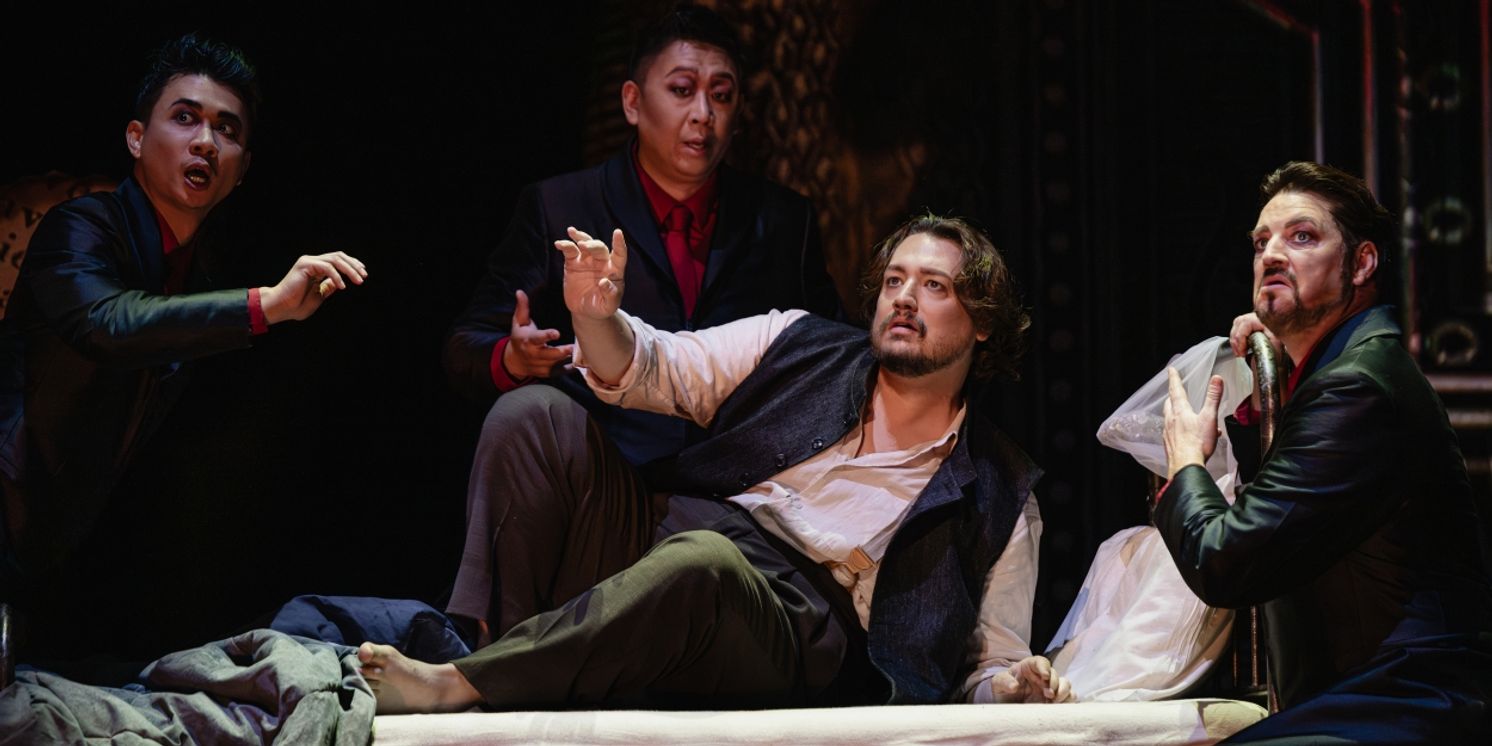Review: Bard's LE PROPHETE Makes You Long for 'Brevity' of Wagner's Ring Cycle
Leon Botstein and ASO Were Indispensable Assets to the Five-Act Musical Extravaganza

Saying that Giacomo Meyerbeer’s LE PROPHETE is long is like calling the Grand Canyon a pothole: It doesn’t begin to describe the experience, though they both sometimes have a rocky landscape.
I don’t imply that there’s a simple one-act opera hiding inside the four-and-a-half+ hours of spectacle that Music Director Leon Botstein brought to Bard SummerScape, in Annandale-on-Hudson, NY, over the last couple of weeks. That would definitely be an exaggeration, because there’s plenty of wonderful music and room for some impressive performances hidden away in PROPHETE.
PROPHETE was a big hit at its opening at the Paris Opera in 1849, though it fell out of favor along with the composers’ other works in the 20th century. Closer to our times, both Meyerbeer and one of the opera’s librettists, Eugene Scribe (with Emile Deschamps) are probably best known for the streets named for them around the ornate Paris Opera/Salle Garnier, off the grand Avenue de l’Opera. (Actually, Scribe may be the more familiar name, for the American Express office where 20th-century American travelers to the French capital once picked up their mail and cashed travelers checks.)
The opera, as described in the program notes, builds its drama out of a scene from 16th century history, set in “the hothouse world of Northern European religious zealotry…with the Anabaptists much in evidence and Jean de Leyde [here, tenor Robert Watson] as their prophet.” The Anabaptists believed that baptism was valid to those freely confessing their faith in Christ and requesting the rite.
The last time it was heard in these parts was the Met’s staging in 1979 done for the great Marilyn Horne as the prophet’s mother, Fides, who also happened to work with the impressive Jennifer Feinstein, the mezzo singing the role here. While her voice may not be as distinctive as Horne’s—there was simply no one like her at her best—Feinstein gave an exciting performance, filled with nuance and color, in some of the opera’s most brilliant music, in Act IV.
She was the outstanding soloist of the three at the center of the performance, followed by the feisty soprano Amina Edris as Berthe, the prophet’s fiancée and object of desire of the overlord (bass-baritone Zacharay Altman). Edris may have sometimes pushed too hard but mostly did very well by her role, given some of Meyerbeer at his finest.
Unfortunately, tenor Watson, as Jean, was not in peak form for much of the run, under the weather in the earlier performances, including the one I attended on July 31. He improved as the opera progressed, and his big voice was often potent; but it was definitely an on-and-off day for him.
There are other roles that livened up the proceedings: The three Anabaptists, Jonas (tenor Brian Vu), Matthisen (bass Wei Wu) and Zacharie (bass Harold Wilson), who have a wonderful chorale, “Ad nos ad salutarem,” composed by Meyerbeer to existing text. The idea was to arouse the interest of local peasants in the idea of social revolution and rising against their overlord, Count Oberthal (bass-baritone Altman) but don’t necessarily want to take credit for it and enlist Jean as a false prophet. They also provided some comic relief.
In addition, there was good work from the tenor and bass soloists, Rashard Deleston and Aaron Theno (at my performance). The Bard Festival Chorale, under James Bagwell, was admirable.
The production by director Christian Rath, also co-designer with Daniel Unger on the simple but effective scenic design (using three enormous, stylized bibles as backdrops for Elaine McCarthy’s projections) left the emphasis on the music.
Alas, the uncut music didn’t always seem to live up to the faith that Maestro Botstein has in the work, though his American Symphony Orchestra impressed when his tempi permitted. (The beginning of the overture was a slog.) Botstein wanted to present the score as fully as possible, even going so far as reinserting the overture that the composer had cut during rehearsals and using the ballet music for a wind quintet heard in the lobby.
Botstein's enthusiasm for underappreciated works is to be admired, to be sure, but I sometimes wish his thinking incorporated a little of the "less is more" ethic--especially when we began to approach the five-hour mark.
Caption: Robert Watson (front/center), from left: Brian Vu, Wei Wu, Harold Watson
Credit: Andy Henderson
Reader Reviews
Videos

